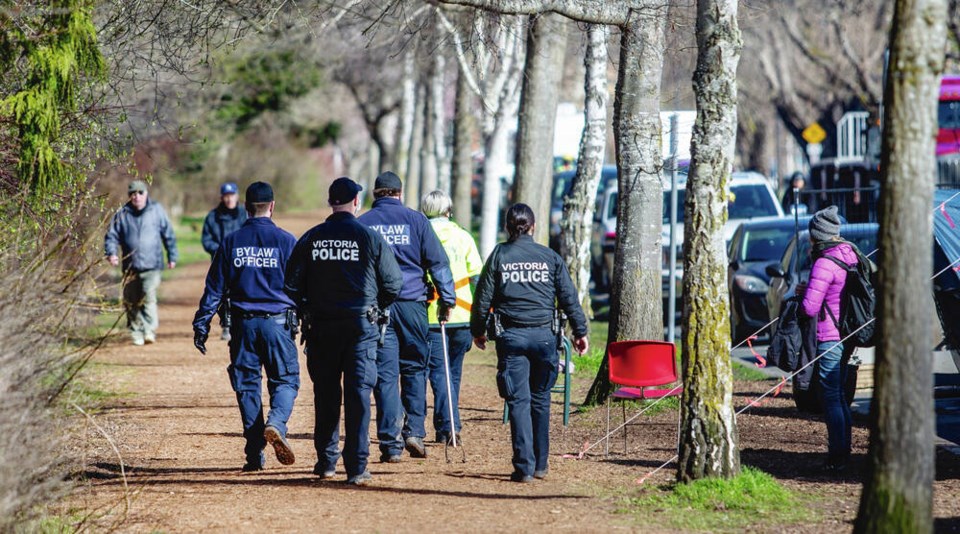A commentary by Victoria city councillor Stephen Andrew.
The City of Victoria is in a public-safety crisis. The first step to solving the growing threat to public safety is to acknowledge it as real and take immediate action. If that is not done, it is difficult to see how we can continue to function as a city.
Our police, bylaw and animal-control departments are in crisis. They are understaffed and overworked. The tone from inside these departments is that “we are dropping like flies.”
The numbers speak for themselves. VicPD has 52 members unable to be deployed due to injury or PTSD, including 17 recruits at the Justice Institute. Shifts lost to injury and PTSD tripled since 2018, from 1,051 to 3,361.
It’s getting worse, with assaults on officers, including being knocked unconscious, attacked while volunteering and recently even being struck by a stolen vehicle.
VicPD often runs below minimum staffing numbers for patrol shifts. At one time, officers were glad to work overtime, but no more. They are increasingly burnt out and shifts are going unfilled.
The response time for “priority one” calls, such as threat to life or assault, is now 7.49 minutes.
Chief Del Manak tells council this is “an unacceptable level.” That is an understatement — it is dangerous.
Morale is badly diminished. Numerous sources say from 10 to 18 officers are actively looking to leave VicPD for other departments such as Saanich, Oak Bay, Surrey and the RCMP. Several veteran officers recently said they have never seen morale so low.
The union says part of the problem is that VicPD handles more work per officer than any other capital region police department, and those VicPD officers get less pay.
As a front-line officer recently said: “It’s not really about the money. We need help. We feel abandoned, underappreciated and everyday face ‘anti-police’ comments. It’s not great right now.”
Throughout the ranks, there is concern that if help doesn’t come soon, surviving the crisis will be next to impossible.
Out of necessity, basic maintenance of public order now rests with city bylaw officers. That department estimates it spends 80 per cent of its time dealing with public safety issues in parks and on the streets, and trying to prevent further encampments.
That leaves little time to deal with a growing list of resident complaints, such as noise, infractions and investigations.
VicPD’s union believes increased provincial shelters and housing programs consume much of their resources. Recently the union told the police board that “the situation has become increasingly worse.”
Between June 12 and Sept. 3, the department responded to 2,701 calls for service to these facilities. In comparison, it responded to 973 calls for the entire municipality of Esquimalt.
We all need to step up and advocate that more resources must be allocated to manage the crisis.
The province must take responsibility for downloading the policing and social cost of its housing initiatives onto the city. The province should consider a program such as the Toronto Public Housing one that focuses public safety on supported housing with its own police department, supported by officers who don’t carry guns or tasers.
The province needs to find a way to keep dangerous criminals and repeat serial offenders off our streets and out of the revolving door of crime and arrest and catch and release.
Otherwise, the public is left without hope for improvement, and the police with growing frustration that their work doesn’t matter.
Manak must continue to be bold and courageous and demand what is needed for his department to turn things around. The same goes for the bylaw department.
Council must acknowledge and support our police and bylaw officers while it increases advocacy for mental health and addiction from higher levels of government.
And you must voice your support to improve public safety by writing to [email protected].
Only if we all work together on this crisis will real change occur.



